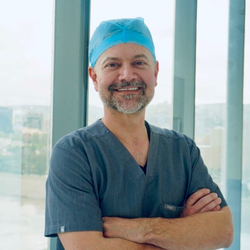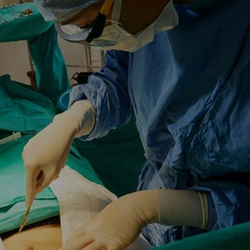Contents
Elevating Health and Wellness: Mini Gastric Bypass Surgery in Latin America
Latin America has rightfully earned its reputation as the global epicenter for bariatric surgery. Countries like Mexico, Colombia, and Costa Rica are not just alternatives to the US or Canada; they are industry leaders where high-volume centers drive surgical excellence. For patients seeking the Mini Gastric Bypass (MGB)—also known as the One-Anastomosis Gastric Bypass (OAGB)—this region offers a unique combination of proximity, affordability, and elite medical expertise.
The Mini Gastric Bypass is favored for being a shorter, technically less complex procedure than the traditional Roux-en-Y, while delivering comparable, if not superior, weight loss results. In Latin America, surgeons have refined this technique to an art form. You will find Board-Certified bariatric surgeons who have performed thousands of successful procedures, utilizing state-of-the-art laparoscopic technology in JCI-accredited hospitals.
Choosing Latin America for your MGB means you are prioritizing your health without bankrupting your future. The region's medical infrastructure is designed specifically for international patients, offering "medical tourism corridors" where English is fluent, safety is prioritized, and recovery feels more like a vacation than a hospital stay.
Whether you choose the convenient border city of Tijuana, the cosmopolitan medical hubs of Bogota, or the tropical recovery centers of San Jose, you are accessing a network of care that rivals the best in the world.
Did You Know?
The "Mini" in Mini Gastric Bypass refers to the simplified surgical technique (one connection instead of two), not the results. In fact, many studies suggest the MGB offers more powerful weight loss and better type 2 diabetes remission rates than the standard gastric bypass. Latin American surgeons are often early adopters of this technique, having performed it safely for decades.
Key Insights at a Glance
Expect to pay $4,500 to $7,000 in Latin America versus $15,000 to $25,000 in the US for the same procedure.
Top surgeons in Mexico and Colombia often perform 3-4 surgeries a day, accumulating vast experience quickly.
The surgery typically takes only 45 to 60 minutes under general anesthesia due to the simplified technique.
Unlike the standard Gastric Sleeve, the MGB can be revised or reversed if medically necessary.
Packages often include nutritionist consultations and psychological evaluations, vital for long-term success.
The "Bariatric Capital"
Tijuana, Mexico, is often cited as the "Bariatric Capital of the World." It boasts the highest concentration of bariatric clinics globally, many of which are located in modern medical towers just minutes from the San Diego border. This specialized ecosystem means every aspect of your stay, from the hotel to the driver, is tailored to the needs of weight loss surgery patients.
Mini Gastric Bypass Package in Latin America
The logistics of surgery abroad are greatly simplified by all-inclusive packages. In the section below, we highlight top providers in Mexico, Colombia, and Costa Rica who offer comprehensive bundles. These packages typically include surgeon and anesthesiologist fees, hospital stay, pre-op tests (labs, EKG), post-op medication, and ground transportation. Review these turnkey solutions to find one that minimizes your planning stress.
Note: Most packages also include a stay at a recovery hotel or "recovery house" with 24/7 nursing assistance.
Mini Gastric Bypass Price in Latin America
Financial accessibility is a primary driver for medical tourism. The table below illustrates the average cost of Mini Gastric Bypass surgery across key Latin American destinations compared to US prices. These costs are transparent, with no hidden "facility fees" often found in domestic healthcare. Use this data to project your savings, which often amount to enough to buy a new car.
Tip: While price is important, never choose a provider based on cost alone. Surgeon experience is the most critical factor.
Mini Gastric Bypass Centers Cost Comparison in Latin America
| Provider | Procedure | Price |
|---|---|---|
| Obesity Bariatric Surgery by Dr. Jorge Maytorena | Mini Gastric Bypass, Obesity/Bariatric Surgery | $6600 |
| Dr. Ricardo Garcia Audelo | Mini Gastric Bypass, Obesity/Bariatric Surgery | $6000 |
| Dra Jessica Sigler | Mini Gastric Bypass, Obesity/Bariatric Surgery | $5750 |
Mini Gastric Bypass Cost Comparison in Latin America
| Country | Procedure | Price |
|---|---|---|
| United States | Mini Gastric Bypass, Obesity/Bariatric Surgery | $15000 |
Top Bariatric Surgery Clinics in Latin America
Your safety depends on the facility's standards. We have curated a list of premier bariatric centers in Latin America. These hospitals are often designated "Centers of Excellence" in Bariatric Surgery. They feature specialized bariatric equipment (larger beds, specific CT scanners) and ICUs. Explore the profiles below to check for certifications like CSG (General Health Council) in Mexico or JCI accreditation.
Look For: International patient departments that provide bilingual coordinators to accompany you at every step.
Watch Informative Video about Mini Gastric Bypass in Latin America
Witnessing the transformation of others can be inspiring. Below are video testimonials from patients who traveled to Latin America for their Mini Gastric Bypass. Watch them discuss their weight loss journey, the quality of care they received, and how the surgery has impacted their comorbidities like diabetes and hypertension. These stories offer an unscripted look at the medical travel experience.
Insight: Note how patients describe the recovery process and the support they received from the nursing staff.
Mini Gastric Bypass in Latin America Testimonials from Real Patients
Honest feedback is invaluable. In this section, we present verified reviews from PlacidWay patients who have undergone bariatric surgery in Latin America. Read about their interactions with surgeons, the cleanliness of the facilities, and their overall satisfaction with the results. High ratings consistently highlight the empathy and professionalism of Latin American medical teams.
Review Tip: Look for reviews that mention long-term follow-up, which is crucial for bariatric success.
Mini Gastric Bypass in Latin America – FAQs
How Much is Mini Gastric Bypass Surgery in Cancun, Mexico?
Considering mini gastric bypass surgery is a significant step towards a healthier future. Cancun, Mexico, has emerged as a leading destination for this procedure, drawing patients from around the world due to its high-quality medical facilities, experienced surgeons, and remarkably affordable prices. This blog post aims to answer common questions about the cost, process, and benefits of undergoing mini gastric bypass surgery in Cancun, providing comprehensive information to help you make an informed decision. We will delve into what makes Cancun a preferred choice for medical tourism, the breakdown of costs, and what to expect before, during, and after your surgery. What is the average cost of Mini Gastric Bypass Surgery in Cancun, Mexico? "The average cost of mini gastric bypass surgery in Cancun, Mexico, ranges from $5,000 to $7,500." This price typically includes the surgeon's fees, anesthesia, hospital stay, pre-operative tests, and post-operative medications. It's important to note that this is a general range, and the exact cost can vary based on the specific clinic, the surgeon's experience, and the comprehensiveness of the package offered. Compared to countries like the United States or Canada, where the same procedure can cost upwards of $18,000 to $25,000, Cancun provides a much more accessible option without compromising on quality of care. Many clinics in Cancun are internationally accredited and adhere to strict medical standards, making it a safe and appealing choice for bariatric surgery. What factors influence the cost of Mini Gastric Bypass in Cancun? "Several factors influence the cost of mini gastric bypass in Cancun, including the clinic's reputation, the surgeon's experience, the type of facility, and the inclusions in the surgical package." The reputation of the medical facility plays a significant role. Highly-rated hospitals and clinics with state-of-the-art equipment and international accreditations might have slightly higher fees. Similarly, surgeons with extensive experience, specialized training, and a strong track record of successful mini gastric bypass procedures may also charge more. The type of facility, whether it's a dedicated bariatric center or a multi-specialty hospital, can also affect the price. Furthermore, comprehensive packages that include things like airport transfers, hotel stays, nutritional counseling, and extended post-operative care will naturally be priced higher than basic surgical fees. What is typically included in a Mini Gastric Bypass package in Cancun? "A typical mini gastric bypass package in Cancun often includes the surgeon's fees, anesthesiologist's fees, hospital stay, pre-operative lab work and diagnostics, post-operative medications, and follow-up consultations." Many clinics offer all-inclusive packages designed to simplify the medical tourism experience. Beyond the core medical services, these packages may also cover airport pick-up and drop-off, accommodation in a nearby hotel for a few nights before and after surgery, and dedicated patient coordinators. Some even include dietary guidance and support groups, which are crucial for long-term success after weight loss surgery. Always clarify what is explicitly covered in the package to avoid any unexpected expenses. Are there any hidden costs I should be aware of for Mini Gastric Bypass in Cancun? "While many clinics in Cancun offer transparent, all-inclusive packages for mini gastric bypass surgery, it's important to confirm what is covered to avoid potential hidden costs such as pre-existing condition evaluations, extended hospital stays, or unexpected complications." Although providers strive for transparency, patients should always ask for a detailed breakdown of costs. Potential hidden fees could include: Pre-operative evaluations for specific pre-existing conditions: If additional specialist consultations or tests are needed beyond standard screenings. Extended hospital stay: If complications arise or a longer recovery period is required in the hospital than initially planned. Medications not covered in the package: Specific prescriptions or supplements might incur extra charges. Travel insurance: While not a direct medical cost, it's a wise investment that can cover unforeseen travel or medical emergencies. Personal expenses: Food outside the provided meals, sightseeing, or shopping are not typically included. Always read the fine print and ask direct questions about what is not included in the quoted price. How does the cost of Mini Gastric Bypass in Cancun compare to the USA or Canada? "The cost of mini gastric bypass surgery in Cancun is significantly lower, typically 50-70% less than in the USA or Canada, where prices can range from $18,000 to $25,000 or more." This substantial price difference is a primary reason why many individuals choose Mexico for their bariatric surgery. The lower cost of living, reduced operational expenses for clinics and hospitals, and competitive medical tourism market contribute to these more affordable rates. Despite the lower price, the quality of care in reputable Cancun clinics often meets or exceeds international standards, with many surgeons having extensive experience and training from Western countries. This makes Cancun an attractive option for those seeking high-quality, affordable weight loss solutions. Is Mini Gastric Bypass in Cancun safe? "Yes, mini gastric bypass in Cancun is generally safe, especially when performed by experienced, board-certified surgeons in accredited medical facilities that adhere to international safety standards." Cancun has become a hub for medical tourism, attracting skilled surgeons and investing in modern hospital infrastructure. Many clinics catering to international patients hold international accreditations, such as those from the Joint Commission International (JCI), which signify adherence to rigorous patient safety and quality-of-care standards. Patients should always research their chosen clinic and surgeon thoroughly, checking credentials, patient reviews, and facility accreditations to ensure a safe and successful outcome for their mini gastric bypass procedure. What are the benefits of choosing Cancun for Mini Gastric Bypass Surgery? "Choosing Cancun for mini gastric bypass surgery offers numerous benefits, including significant cost savings, access to experienced surgeons and modern facilities, reduced wait times, and the opportunity for a recuperative getaway." Cost-Effectiveness: The primary draw is the substantial savings compared to Western countries, making life-changing bariatric surgery more accessible. High-Quality Medical Care: Many clinics boast internationally trained, board-certified surgeons and state-of-the-art equipment. Reduced Wait Times: Patients can often schedule their surgery much quicker than in their home countries. Medical Tourism Destination: Cancun offers a pleasant environment for recovery, allowing patients to combine their medical trip with a relaxing vacation. This can contribute positively to the healing process. Comprehensive Packages: Many providers offer all-inclusive packages that streamline the entire process, from arrival to departure. These combined factors make Cancun a highly appealing destination for individuals seeking effective and affordable weight loss solutions. What qualifications should I look for in a surgeon for Mini Gastric Bypass in Cancun? "When selecting a surgeon for mini gastric bypass in Cancun, look for board certification, extensive experience in bariatric surgery (specifically mini gastric bypass), membership in international bariatric associations, and positive patient testimonials." A board-certified surgeon demonstrates a high level of expertise and adherence to professional standards. Experience is crucial, so inquire about the number of mini gastric bypass procedures they have performed and their success rates. Membership in organizations like the American Society for Metabolic and Bariatric Surgery (ASMBS) or the Mexican Council of Bariatric and Metabolic Surgery (CMCOEM) indicates a commitment to staying current with best practices. Finally, reading patient reviews and asking for references can provide valuable insight into the surgeon's approach and patient outcomes, ensuring you choose a qualified and trustworthy professional for your weight loss surgery. What is the recovery process like after Mini Gastric Bypass in Cancun? "The recovery process after mini gastric bypass in Cancun typically involves a hospital stay of 1-3 days, followed by a gradual return to normal activities over 2-4 weeks, with full recovery taking several months." Immediately after the surgery, patients will be closely monitored in the hospital. The focus will be on pain management and starting the post-operative diet, which begins with clear liquids and gradually progresses to pureed foods, soft foods, and eventually solid foods. Patients are encouraged to start walking soon after surgery to aid recovery and prevent complications. Most international patients stay in Cancun for about a week to allow for initial recovery and a final check-up before returning home. Long-term recovery involves adhering to a strict diet, taking supplements, and incorporating regular exercise, all guided by the medical team. This commitment is vital for the long-term success of the mini gastric bypass. What are the potential risks and complications of Mini Gastric Bypass? "Like any major surgery, mini gastric bypass carries potential risks and complications, though they are generally rare. These can include bleeding, infection, leaks at the staple line, nutrient deficiencies, and complications related to anesthesia." While mini gastric bypass is considered a safer and less complex procedure than traditional gastric bypass, it's not without its potential downsides. Specific risks include: Bleeding and Infection: As with any surgery, there's a small risk of these complications. Anastomotic Leaks: A rare but serious complication where stomach contents leak from the staple lines. Nutrient Deficiencies: Due to the malabsorptive component, patients may experience deficiencies in vitamins and minerals, requiring lifelong supplementation. Dumping Syndrome: Rapid emptying of stomach contents into the small intestine, leading to symptoms like nausea, diarrhea, and dizziness, especially after eating sugary or fatty foods. Gallstones: Rapid weight loss can increase the risk of gallstone formation. Ulcers: Formation of ulcers at the surgical site. Reputable clinics in Cancun will thoroughly discuss these risks with patients and take all necessary precautions to minimize them. What kind of post-operative support is available after Mini Gastric Bypass in Cancun? "Post-operative support after mini gastric bypass in Cancun typically includes dietary guidance from a nutritionist, follow-up consultations with the surgeon, and sometimes access to online support groups or patient coordinators for remote assistance." The success of mini gastric bypass hinges on long-term lifestyle changes, and good post-operative support is critical. Reputable clinics understand this and provide resources to help patients adapt to their new eating habits and maintain weight loss. This usually involves detailed dietary plans, often spanning several phases, to guide patients through the reintroduction of various foods. Regular check-ups with the surgeon ensure proper healing and address any concerns. For international patients, many clinics offer virtual consultations or connect them with patient coordinators who can answer questions and provide support remotely. Some also facilitate online support groups where patients can share experiences and advice, fostering a sense of community. How long should I plan to stay in Cancun for Mini Gastric Bypass surgery? "Patients undergoing mini gastric bypass surgery in Cancun should plan to stay in the city for approximately 5 to 7 days, including pre-operative assessments, the surgery itself, and initial post-operative recovery." This timeframe allows for essential pre-surgical consultations and tests to ensure you are a suitable candidate and fully prepared for the procedure. The surgery typically requires a hospital stay of 1 to 3 nights. The remaining days are for initial recovery in a comfortable hotel, allowing the medical team to monitor your progress and provide final instructions before your return home. It's crucial to follow your surgeon's recommendations for the length of your stay to ensure a safe and smooth recovery. What are the eligibility requirements for Mini Gastric Bypass? "Eligibility for mini gastric bypass surgery generally requires a Body Mass Index (BMI) of 40 or higher, or a BMI of 35 or higher with at least one obesity-related comorbidity such as type 2 diabetes, high blood pressure, or sleep apnea." Beyond BMI, candidates for mini gastric bypass must also demonstrate a commitment to significant lifestyle changes, including adherence to a new diet and regular exercise, and be psychologically prepared for the surgery and its long-term implications. They should have a history of unsuccessful attempts at weight loss through diet and exercise alone. A comprehensive medical evaluation will also assess overall health to ensure the patient can safely undergo the procedure and recover well. Can I combine Mini Gastric Bypass with a vacation in Cancun? "While mini gastric bypass surgery in Cancun offers the appeal of a beautiful destination, the primary focus should be on your health and recovery. It is possible to combine it with a short, relaxing recuperation, but extensive sightseeing or strenuous activities are not recommended immediately after surgery." Many patients appreciate the opportunity to recover in a pleasant environment like Cancun. Some medical tourism packages even include stays in resort-like settings designed for post-operative rest. However, it's crucial to prioritize your recovery. Immediately after surgery, you'll need to rest, follow dietary restrictions, and limit physical activity. Any exploration should be gentle and short-lived. Planning a true "vacation" portion of your trip for a later date, once you're fully recovered, is advisable. Your medical team will provide specific guidelines on activity levels. How do I prepare for Mini Gastric Bypass surgery in Cancun? "Preparing for mini gastric bypass surgery in Cancun involves following your surgeon's pre-operative diet (often a liquid diet), stopping certain medications, and arranging travel logistics like flights and accommodation." Preparation is a critical component of successful bariatric surgery. Your medical team will provide detailed instructions, which typically include: Pre-operative Diet: This often involves a strict liquid diet for a period (e.g., 1-2 weeks) leading up to the surgery to shrink the liver and reduce fat around abdominal organs, making the surgery safer. Medication Adjustments: You may need to stop certain medications, especially blood thinners, a week or two before surgery. Medical Clearances: Ensuring all necessary medical tests and evaluations are completed and cleared by your local doctor or the Cancun clinic. Travel Arrangements: Booking flights, confirming accommodation, and arranging airport transfers, especially if not included in your package. Packing Essentials: Comfortable clothing, essential toiletries, and any personal items for your hospital and hotel stay. Mental Preparation: Understanding the changes ahead and committing to the new lifestyle. Following these guidelines meticulously will contribute to a smoother surgery and recovery. What are the long-term outcomes and weight loss expectations after Mini Gastric Bypass? "Patients can expect significant long-term weight loss after mini gastric bypass, typically losing 60-80% of their excess weight within 12-18 months, with sustained weight loss for many years through adherence to lifestyle changes." Mini gastric bypass is known for its effective and durable weight loss results. Beyond weight reduction, patients often experience significant improvements or even resolution of obesity-related health conditions such as type 2 diabetes, high blood pressure, sleep apnea, and high cholesterol. The exact amount of weight loss and the long-term success depend heavily on the individual's commitment to the post-operative dietary guidelines, regular physical activity, and consistent follow-up care. It's a powerful tool, but consistent effort is needed to maintain the positive outcomes. Will my insurance cover Mini Gastric Bypass in Cancun? "Generally, most private health insurance plans in the USA and Canada do not cover mini gastric bypass surgery in Cancun, as it is an elective procedure performed outside their network." While some insurance providers may have limited international coverage for emergencies, elective procedures like bariatric surgery are typically not covered. Patients usually pay out-of-pocket for their surgery in Mexico. However, it is always recommended to contact your insurance provider directly to inquire about any specific policies or potential for partial reimbursement, especially if you have a high deductible or an out-of-network benefits plan. Many clinics in Cancun offer financing options or payment plans to help manage the cost, making mini gastric bypass more financially accessible. If you're considering mini gastric bypass surgery, Cancun, Mexico, presents a compelling option, balancing affordability with high standards of care. By providing comprehensive answers to common questions, we hope to have shed light on the process, costs, and benefits of undergoing this life-changing procedure in this popular medical tourism destination. Making an informed decision is crucial for your health journey. To explore options for mini gastric bypass surgery or other healthcare services in Cancun and beyond, visit PlacidWay. We connect you with world-class medical facilities and experienced professionals, helping you find the right solution for your healthcare needs. .
How much does Mini-Gastric Bypass Surgery Cost in Tijuana, Mexico?
Considering significant weight loss and a healthier future? Mini-Gastric Bypass (MGB) surgery is a highly effective bariatric procedure, and Tijuana, Mexico, has become a prominent destination for patients seeking quality, affordable care. This guide aims to answer your most pressing questions about Mini-Gastric Bypass in Tijuana, helping you understand the procedure, its benefits, costs, and what to expect from your medical journey to Mexico. We'll delve into what makes Tijuana a popular choice for MGB and how to navigate your options for a successful outcome. Mini-Gastric Bypass surgery in Tijuana offers a simplified yet powerful alternative to traditional Roux-en-Y gastric bypass, often with comparable or even superior weight loss results and a reduced risk of certain complications. It's designed to help you achieve substantial and sustainable weight loss by restricting food intake and reducing nutrient absorption. Many patients choose Tijuana for its experienced surgeons, modern facilities, and significantly lower costs compared to the US, Canada, or Europe, without compromising on the quality of care. Let's explore the details. What is the average cost of Mini-Gastric Bypass in Tijuana? "The average cost of Mini-Gastric Bypass in Tijuana, Mexico, typically ranges from $4,500 to $7,500 USD. This price often includes the surgeon's fees, hospital stay, anesthesia, and some pre- and post-operative care." This cost is considerably lower than in the United States, where the same procedure can range from $15,000 to $30,000 or more. The package price for MGB in Tijuana often covers: Surgeon's fees Anesthesiologist's fees Hospital fees (including operating room and recovery room charges) Pre-operative tests (blood work, EKG, etc., if done on-site) Medications administered during the hospital stay Post-operative consultations (often virtual) Sometimes, ground transportation from a nearby airport (e.g., San Diego) and hotel accommodations for a portion of the stay are included. It's crucial to get a detailed breakdown of what is included in the quoted price to avoid unexpected expenses. Factors influencing the final cost can include the surgeon's experience, the specific hospital or clinic, the length of the hospital stay, and any additional medical needs. What exactly is a Mini-Gastric Bypass? "A Mini-Gastric Bypass (MGB) is a type of bariatric surgery that creates a long, narrow stomach pouch and connects it to the small intestine, bypassing a significant portion of the stomach and the initial segment of the small intestine to reduce food intake and nutrient absorption, leading to weight loss." The Mini-Gastric Bypass, sometimes called the "single anastomosis gastric bypass" or "omega loop gastric bypass," is a procedure that combines restrictive and malabsorptive elements. First, the surgeon divides the stomach to create a smaller, tube-shaped pouch. This new, smaller stomach can only hold a small amount of food, which helps you feel full sooner and eat less (restriction). Next, a loop of the small intestine (usually about 150-250 cm from its starting point) is brought up and connected to this new stomach pouch. This bypasses a considerable length of the small intestine where calories and nutrients are normally absorbed, leading to fewer calories being utilized by the body (malabsorption). The MGB is generally considered technically simpler and quicker to perform than the traditional Roux-en-Y Gastric Bypass (RNYGB). It involves only one new connection (anastomosis) between the stomach and the small intestine, compared to two connections in the RNYGB. This simplicity can contribute to a shorter operating time and potentially fewer early complications. How is Mini-Gastric Bypass different from traditional Gastric Bypass (Roux-en-Y)? "The main difference is that Mini-Gastric Bypass (MGB) involves creating one connection (anastomosis) between the new stomach pouch and the small intestine, forming a loop, while the traditional Roux-en-Y Gastric Bypass (RNYGB) creates two connections, involving a Y-shaped re-routing of the intestine." While both MGB and RNY Gastric Bypass aim for significant weight loss through stomach restriction and intestinal bypass, their surgical construction differs. The RNY procedure involves creating a small stomach pouch and then dividing the small intestine into two limbs: the "Roux limb" (or alimentary limb), which is connected to the stomach pouch, and the "biliopancreatic limb," which carries digestive juices and is reconnected to the alimentary limb further down. This "Y" configuration gives it its name. In contrast, the Mini-Gastric Bypass in Tijuana creates a longer, narrower pouch and directly connects a loop of the small intestine to it. This single anastomosis (connection) is often seen as a simplification that may reduce operative time and some specific complications like internal hernias, which can be more common with RNYGB. Some studies suggest MGB offers comparable, if not slightly better, long-term weight loss and resolution of comorbidities like type 2 diabetes, with potentially lower rates of certain complications. However, MGB can have a higher risk of bile reflux into the stomach pouch for some individuals. Why should I consider Tijuana for my Mini-Gastric Bypass surgery? "Tijuana is a popular choice for Mini-Gastric Bypass surgery due to its significantly lower costs compared to countries like the US, Canada, or the UK, experienced bariatric surgeons, modern medical facilities, and proximity to the United States, making travel convenient." Tijuana has established itself as a leading hub for medical tourism, particularly for bariatric surgery Mexico. Several factors contribute to its appeal: Cost-Effectiveness: The most significant driver is the price. Weight loss surgery Tijuana can be 50-70% cheaper than in the U.S. without a compromise in quality when performed by reputable providers. This includes surgeon fees, hospital stays, and often pre-operative and post-operative consultations. Experienced Surgeons: Many surgeons in Tijuana specializing in MGB are highly trained, often with fellowships or training in the US or Europe. They typically have performed thousands of bariatric procedures. Modern Facilities: Reputable hospitals and surgical centers in Tijuana are equipped with state-of-the-art technology and adhere to international standards of care. Many cater specifically to international patients. Accessibility: For North American patients, Tijuana's location just across the U.S. border (near San Diego, California) makes it easily accessible by car or a short flight. Many clinics offer transportation services from the San Diego airport. Shorter Wait Times: Unlike in some countries with public healthcare systems where wait times for bariatric surgery can be extensive, qualified patients can often schedule their Mini-Gastric Bypass in Tijuana much more quickly. Is Mini-Gastric Bypass surgery in Tijuana safe? "Yes, Mini-Gastric Bypass surgery in Tijuana can be very safe when performed by qualified, experienced surgeons in accredited medical facilities. Many Tijuana bariatric centers adhere to international safety standards and have a strong track record." Safety is a primary concern for anyone considering medical procedures abroad. When it comes to weight loss surgery Tijuana, the safety and quality of care can be comparable to that in Western countries, provided you do thorough research and choose a reputable provider. Look for surgeons who are board-certified (Mexican board certification is common, and some may have international affiliations), have extensive experience specifically with MGB, and operate in hospitals or clinics that are well-equipped and possibly internationally accredited (e.g., by JCI or other recognized bodies). Reading patient testimonials, checking before-and-after photos, and having direct consultations (even virtual ones) with potential surgeons can also help gauge the quality of care. While any surgery carries risks, choosing a high-volume, experienced bariatric center in Tijuana significantly mitigates these risks. Who is a good candidate for Mini-Gastric Bypass surgery in Tijuana? "A good candidate for Mini-Gastric Bypass in Tijuana typically has a Body Mass Index (BMI) of 40 or higher, or a BMI of 35 or higher with significant obesity-related health conditions like type 2 diabetes, sleep apnea, or hypertension, and is committed to long-term lifestyle changes." General criteria for MGB candidacy include: BMI: As stated, a BMI ≥ 40, or ≥ 35 with comorbidities. In some cases, individuals with a BMI of 30-34.9 with severe comorbidities might be considered. Previous Weight Loss Attempts: Candidates have usually tried and failed to achieve significant, sustained weight loss through diet and exercise alone. Understanding of the Procedure: The patient must understand the surgery, including its risks, benefits, and the necessary lifelong dietary and lifestyle adjustments. Psychological Stability: Candidates should be psychologically stable and prepared for the changes surgery will bring. Some clinics may require a psychological evaluation. Commitment to Follow-Up: A willingness to adhere to post-operative dietary guidelines, vitamin supplementation, and long-term medical follow-up is crucial. No Contraindications: Certain medical conditions might make the surgery too risky. These include severe heart or lung disease, active substance abuse, or uncontrolled psychiatric disorders. Each patient is evaluated individually by the bariatric team in Tijuana to determine their suitability for Mini-Gastric Bypass. What are the primary benefits of undergoing a Mini-Gastric Bypass? "The primary benefits of Mini-Gastric Bypass include significant and sustained weight loss, improvement or resolution of obesity-related health conditions (like type 2 diabetes, hypertension, sleep apnea), enhanced quality of life, and potentially a simpler surgical procedure compared to traditional gastric bypass." Patients who undergo MGB surgery can experience a multitude of positive changes: Significant Weight Loss: Most patients lose 60-80% of their excess body weight within the first 12-24 months. Resolution of Comorbidities: Type 2 Diabetes: MGB often leads to rapid improvement or remission of type 2 diabetes, sometimes even before significant weight loss occurs. Hypertension: Blood pressure often normalizes or significantly improves. Hyperlipidemia: Cholesterol and triglyceride levels can improve. Obstructive Sleep Apnea: Many patients experience complete resolution. Joint Pain: Reduced body weight lessens stress on joints. Improved Quality of Life: Increased mobility, better mood, improved self-esteem, and enhanced social interactions are commonly reported. Increased Longevity: By reducing obesity and related diseases, MGB can contribute to a longer, healthier life. Potentially Shorter Operative Time: Compared to RNYGB, the MGB procedure is often quicker. What are the potential risks and complications associated with Mini-Gastric Bypass? "Potential risks and complications of Mini-Gastric Bypass include infection, bleeding, blood clots, staple line leaks, ulcers, malnutrition, vitamin deficiencies, and bile reflux. While serious complications are rare with experienced surgeons, all surgery carries inherent risks." It's important to be aware of the potential downsides. While MGB is generally safe, complications can occur, similar to any major surgery. These can be categorized into early (short-term) and late (long-term) complications: Early Complications: Staple Line Leak: A serious complication where digestive fluids leak from the staple line. Bleeding: Can occur internally or at incision sites. Infection: Wound infections or internal infections. Blood Clots: Deep Vein Thrombosis (DVT) or Pulmonary Embolism (PE). Anesthesia-related complications. Late Complications: Bile Reflux Gastritis/Esophagitis: The loop design of MGB can sometimes lead to bile flowing back into the stomach pouch or esophagus, causing inflammation. This is one of the more debated aspects of MGB, though its incidence varies. Marginal Ulcers: Ulcers can form at the connection between the stomach pouch and the small intestine, especially in smokers or those taking NSAIDs. Anemia and Vitamin/Mineral Deficiencies: Due to malabsorption, lifelong supplementation of iron, calcium, vitamin B12, vitamin D, and other micronutrients is essential to prevent deficiencies. Dumping Syndrome: Caused by rapid passage of sugary or fatty foods into the small intestine, leading to nausea, cramping, diarrhea, dizziness, and sweating. Internal Hernia: Less common with MGB than RNYGB, but still a possibility. Gallstones: Rapid weight loss can increase the risk of developing gallstones. Choosing an experienced Mini-Gastric Bypass Tijuana surgeon and adhering strictly to pre- and post-operative guidelines can significantly minimize these risks. How much weight can I expect to lose after a Mini-Gastric Bypass in Tijuana? "Patients undergoing Mini-Gastric Bypass in Tijuana can typically expect to lose between 60% to 80% of their excess body weight, with most of this loss occurring within the first 12 to 18 months post-surgery." Excess body weight is calculated by subtracting your ideal body weight from your current weight. For example, if your current weight is 250 lbs and your ideal weight is 150 lbs, your excess body weight is 100 lbs. With MGB, you could expect to lose 60 to 80 lbs. The actual amount of weight lost varies depending on several factors, including: Starting BMI: Patients with higher initial BMIs may lose more total pounds. Adherence to Dietary Guidelines: Following the post-op diet is crucial. Exercise Levels: Incorporating regular physical activity enhances weight loss and muscle preservation. Individual Metabolism and Genetics: Commitment to Lifestyle Changes: Long-term success is tied to sustained healthy habits. It's important to focus not just on the number on the scale, but also on improvements in health, mobility, and overall well-being that accompany weight loss surgery Tijuana. What is the recovery process like after Mini-Gastric Bypass surgery in Tijuana? "Recovery after Mini-Gastric Bypass in Tijuana involves a hospital stay of 2-3 days, followed by a period of at-home recovery. Patients typically return to light activities within 1-2 weeks and more strenuous activities within 4-6 weeks, with a gradual progression of diet from liquids to solids over several weeks." The initial recovery phase in Tijuana will be closely monitored by your surgical team. Hospital Stay: Usually 2 to 3 nights. You'll be encouraged to walk soon after surgery to prevent blood clots. Pain medication will be provided. You'll start with a clear liquid diet. Diet Progression: You will follow a strict dietary plan, advancing slowly: Clear liquids (first few days) Full liquids (e.g., protein shakes, yogurt) for a couple of weeks Pureed foods Soft foods Gradual return to solid foods (usually around 6-8 weeks post-op) Activity: Walking is encouraged immediately. Most patients can resume desk jobs and light activities within 1-2 weeks. Strenuous exercise and heavy lifting should be avoided for at least 4-6 weeks, or as advised by your surgeon. Follow-up: You will have follow-up appointments (often virtual if you've traveled from abroad) and will need regular blood tests to monitor for nutritional deficiencies. Adherence to the surgeon’s instructions is key for a smooth recovery from MGB. How long do I need to stay in Tijuana for my Mini-Gastric Bypass procedure? "Patients typically need to stay in Tijuana for approximately 5 to 7 days for a Mini-Gastric Bypass procedure. This includes pre-operative evaluations, the surgery itself, a 2-3 day hospital stay, and initial recovery monitoring before being cleared for travel." This timeframe allows for: Pre-operative Consultations and Tests: Usually 1-2 days before surgery. This involves meeting your surgeon, anesthesiologist, and completing any necessary final tests. Surgery Day: The procedure itself. Hospital Recovery: 2-3 nights in the hospital for monitoring. Initial Post-Operative Recovery: A day or two after hospital discharge, often in a nearby hotel, to ensure you are stable and comfortable enough for travel. Your surgeon will want to see you for a post-operative check before you depart. Some patients opt to stay longer for a more relaxed initial recovery period, but the minimum recommended stay usually falls within this 5-7 day window for Mini-Gastric Bypass Tijuana. What kind of pre-operative preparations are required for MGB surgery in Tijuana? "Pre-operative preparations for Mini-Gastric Bypass in Tijuana typically include a special low-calorie, high-protein diet for 2-4 weeks before surgery to reduce liver size, stopping certain medications (like blood thinners), smoking cessation, and undergoing medical evaluations and tests." Your surgeon will provide specific pre-operative instructions, which are vital for a safe and successful MGB procedure. These often include: Pre-operative Diet: A liquid or very low-calorie diet for a few weeks before surgery. This helps shrink the liver, making the surgery safer and technically easier for the surgeon. It also helps kick-start weight loss. Medication Adjustments: You'll need to inform your surgeon of all medications and supplements you take. Some, like aspirin, NSAIDs (ibuprofen), and blood thinners, will need to be stopped or adjusted before surgery. Smoking Cessation: If you smoke, you'll be required to quit several weeks or months before surgery, as smoking significantly increases surgical risks and impairs healing. Medical Clearances: You may need clearances from your primary care physician or specialists (e.g., cardiologist) depending on your health status. Lab Tests and Imaging: Standard pre-op tests include blood work, EKG, and possibly a chest X-ray or upper endoscopy. Mental Preparation: Understanding the surgery and committing to the necessary lifestyle changes. What is the typical post-operative diet after a Mini-Gastric Bypass? "The post-operative diet after Mini-Gastric Bypass is a phased approach, starting with clear liquids, progressing to full liquids, then pureed foods, soft foods, and finally to regular textured (but healthy) solid foods over approximately 6-8 weeks. Lifelong vitamin and mineral supplementation is also essential." The post-MGB Mexico diet is carefully structured to allow your new stomach pouch and digestive system to heal and to help you adapt to new eating habits. Phase 1 (First few days - 1 week): Clear Liquids. Water, broth, unsweetened diluted juice, decaf tea/coffee. Sip slowly. Phase 2 (1-2 weeks): Full Liquids/Protein Shakes. Sugar-free protein shakes, skim milk, thin soups, sugar-free gelatin. Focus on protein intake. Phase 3 (2-3 weeks): Pureed Foods. Foods blended to a smooth, baby-food consistency. Examples: pureed lean meats, cooked vegetables, soft fruits, cottage cheese. Phase 4 (Several weeks): Soft Foods. Foods that are easy to chew and digest. Examples: scrambled eggs, flaked fish, well-cooked vegetables, soft cheeses. Phase 5 (Around 2 months onwards): Regular Healthy Diet. Gradually introduce more solid foods, focusing on lean protein, vegetables, fruits, and whole grains. Portion control is key. Avoid sugary, fatty, and processed foods. Throughout all phases, hydration is critical. You'll also need to take prescribed vitamin and mineral supplements for life to prevent deficiencies due to the malabsorptive component of Mini-Gastric Bypass in Tijuana. What kind of support can I expect after my MGB surgery in Tijuana? "After MGB surgery in Tijuana, reputable clinics typically offer post-operative support that includes nutritional counseling, follow-up consultations (often virtual for international patients), access to support groups, and guidance on lifestyle adjustments." Good bariatric programs understand that surgery is just one tool. Long-term success relies on ongoing support. When choosing a provider for Mini-Gastric Bypass Tijuana, inquire about their aftercare services: Nutritional Guidance: Access to a nutritionist or dietitian specializing in bariatric patients is crucial for adapting to your new dietary needs and ensuring adequate nutrient intake. Surgeon Follow-Up: Regular check-ins with your surgical team, even remotely via phone or video call, to monitor your progress and address any concerns. Support Groups: Many clinics facilitate online or local support groups where patients can share experiences, challenges, and successes. This peer support can be invaluable. Educational Resources: Information on diet, exercise, vitamin supplementation, and managing potential side effects. Coordination with Local Physicians: Some Tijuana clinics may help coordinate follow-up care with your primary care physician back home, especially for lab work and monitoring. How do I choose the best surgeon and clinic for Mini-Gastric Bypass in Tijuana? "To choose the best surgeon and clinic for Mini-Gastric Bypass in Tijuana, research surgeon credentials (board certification, experience with MGB), check clinic accreditations, read patient reviews and testimonials, and have a direct consultation to assess their communication and your comfort level." Making an informed decision is paramount for a safe and successful weight loss surgery Tijuana experience. Key steps include: Verify Surgeon Credentials: Board Certification: Ensure the surgeon is board-certified in Mexico (e.g., by the Mexican Council of General Surgery and the Mexican College of Bariatric and Metabolic Surgery). Experience: Ask how many MGB procedures they have performed. High volume often correlates with better outcomes. Specialized Training: Inquire about their bariatric surgery fellowships or specialized training. Assess Clinic/Hospital Standards: Accreditation: Look for facilities with national or international accreditations (e.g., JCI, Mexican Ministry of Health approval). Equipment and Technology: Ensure they use modern surgical equipment and have appropriate emergency care capabilities. Read Patient Reviews and Testimonials: Look for reviews on independent platforms, forums, and the clinic's website. Consider both positive and negative feedback. Seek Before-and-After Photos: These can provide a visual representation of the surgeon's work. Direct Communication: Schedule a consultation (virtual or in-person if possible). Prepare questions about their experience, success rates, complication rates, and approach to aftercare for MGB Mexico. Assess their responsiveness and willingness to answer your questions thoroughly. Transparent Pricing: Ensure all costs are clearly outlined. What accreditations should I look for in a Tijuana bariatric clinic? "When choosing a Tijuana bariatric clinic for Mini-Gastric Bypass, look for accreditations such as those from the Mexican Federal Government (COFEPRIS approval), international bodies like Joint Commission International (JCI) if available, or certifications from bariatric-specific organizations." Accreditations provide an external validation of a clinic's commitment to quality and safety standards. Key ones include: COFEPRIS (Federal Commission for the Protection against Sanitary Risks): This is the Mexican equivalent of the FDA in the United States. Clinics and hospitals must have COFEPRIS approval to operate legally. Mexican General Health Council (Consejo de Salubridad General): This body provides national hospital certification, which is a mark of quality. Joint Commission International (JCI): This is a highly respected international accreditation. While not all top clinics in Tijuana will have JCI accreditation due to its rigorous and costly process, those that do demonstrate a very high standard of care. International Bariatric Club (IBC) or similar surgical society memberships: Surgeon membership in recognized bariatric societies can indicate a commitment to ongoing education and best practices. SRC (Surgical Review Corporation) Accreditations: Look for designations like "Center of Excellence in Metabolic and Bariatric Surgery" if the clinic or surgeon has pursued this US-based accreditation. Always verify these credentials and accreditations for your chosen Mini-Gastric Bypass Tijuana provider. What is the long-term success rate of Mini-Gastric Bypass performed in Tijuana? "The long-term success rate of Mini-Gastric Bypass performed in Tijuana by qualified surgeons is comparable to MGBs performed elsewhere, with patients typically maintaining significant excess weight loss (50-70% or more) and improvement in comorbidities for many years post-surgery, provided they adhere to lifestyle changes." Long-term success is generally defined by sustained weight loss and resolution or improvement of obesity-related health issues. For MGB, like MGB globally, studies show excellent long-term results. Success is highly dependent on: Patient Adherence: Lifelong commitment to dietary changes, regular exercise, and vitamin supplementation is the most critical factor. Quality of Surgery: A well-performed operation by an experienced surgeon sets the foundation. Post-Operative Support: Ongoing nutritional and medical follow-up helps patients stay on track and manage any late complications. While some weight regain can occur over several years (as with any bariatric procedure), most MGB patients maintain a substantial portion of their weight loss and continue to experience health benefits long-term. Reputable Mini-Gastric Bypass Tijuana centers often track their patient outcomes and can provide data on their success rates. What specific questions should I ask my surgeon before committing to MGB in Tijuana? "Before committing to MGB in Tijuana, ask your surgeon about their specific experience with Mini-Gastric Bypass, their complication rates, what's included in the surgical package, their approach to aftercare and managing potential complications, and details about the hospital facility and anesthesia." Being well-informed is key. Prepare a list of questions for your consultation: How many Mini-Gastric Bypass procedures have you performed? What are your personal complication rates for MGB (e.g., leaks, infections, strictures)? Are you board-certified in general surgery and bariatric surgery? Where did you receive your training? Which hospital will the surgery be performed at? What are its accreditations? What is included in the price of the MGB package? What are potential additional costs? What type of anesthesia will be used, and who administers it? What is your protocol for pre-operative preparation? What does the post-operative follow-up care involve, especially for international patients? How do you handle potential complications if they arise after I return home? Can you provide references from past MGB patients? What are the specific risks and benefits of MGB for me, given my health profile? What is your policy on revisions if the initial surgery is not successful or if there are late complications like significant bile reflux? A reputable surgeon for Mini-Gastric Bypass in Tijuana will welcome your questions and provide clear, honest answers. Ready to explore your options for Mini-Gastric Bypass surgery in Tijuana, Mexico? PlacidWay can help connect you with experienced bariatric surgeons and reputable clinics. Take the next step towards a healthier you – explore PlacidWay today!
How Much Does Mini Gastric Bypass Cost in Mexico?
Are you considering a mini gastric bypass to support your weight loss journey? Mexico has become a popular destination for this procedure, primarily due to its significantly lower mini gastric bypass cost in Mexico compared to countries like the US and Canada. This bariatric surgery, also known as a single anastomosis gastric bypass, offers an effective solution for individuals struggling with obesity. In this comprehensive guide, we'll delve into everything you need to know about the procedure, its costs in Mexico, and what to expect. Many people are curious about the affordability and quality of medical procedures abroad, and for good reason. Understanding the financial aspect is crucial, but so is ensuring you receive safe and effective treatment. We'll explore the various factors influencing the price, what's typically included in a package, and answer pressing questions to help you make an informed decision about getting a mini gastric bypass in Mexico. What Exactly is a Mini Gastric Bypass? "A mini gastric bypass (MGB) is a less invasive and quicker surgical alternative to the traditional Roux-en-Y gastric bypass, creating a smaller stomach pouch and rerouting the intestines to promote weight loss by restricting food intake and reducing calorie absorption." The MGB procedure involves creating a long, narrow stomach pouch that is then connected to a loop of the small intestine, typically about 150 to 250 centimeters from its starting point. This bypasses a significant portion of the stomach and the initial segment of the small intestine (duodenum). The result is that patients feel fuller with smaller amounts of food and absorb fewer calories, leading to substantial and sustained weight loss. It's considered simpler and often has a shorter operative time than the standard gastric bypass. The procedure is typically performed laparoscopically, meaning it involves small incisions and the use of a tiny camera and specialized instruments. This minimally invasive approach generally leads to quicker recovery times, less pain, and reduced scarring compared to open surgery. Many patients find the mini gastric bypass an appealing option due to these benefits and its high success rates in achieving long-term weight management. How Much Does a Mini Gastric Bypass Cost in Mexico? "The mini gastric bypass cost in Mexico typically ranges from $5,500 to $8,500 USD, which is significantly lower than in countries like the United States or Canada where it can cost upwards of $20,000." This price range is an estimate, and the final cost can vary based on several factors (which we'll discuss next). However, even at the higher end of this range, patients often save 50-70% by choosing to have their mini gastric bypass in Mexico. This cost-effectiveness is a primary driver for medical tourism to the country, attracting thousands of international patients annually for various bariatric procedures. It's important to note that a lower price doesn't necessarily mean lower quality. Many Mexican hospitals and surgical centers catering to international patients are state-of-the-art facilities with highly experienced, often US-trained, bariatric surgeons. The lower costs are generally due to factors like lower overhead, reduced labor costs, and a more favorable exchange rate, not a compromise on safety or expertise. What Factors Influence the Cost of Mini Gastric Bypass in Mexico? "Several factors influence the final mini gastric bypass cost in Mexico, including the surgeon's experience, the hospital's reputation and facilities, the geographic location within Mexico, the complexity of the individual case, and what's included in the surgical package." Let's break these down: Surgeon's Expertise and Reputation: Highly experienced bariatric surgeons with a proven track record and international certifications may charge more for their services. Their expertise can contribute to better outcomes and lower complication rates. Hospital or Clinic Choice: Hospitals with advanced technology, JCI accreditation (or other international accreditations), and luxurious amenities will generally have higher prices than smaller clinics. Geographic Location: Costs can vary between different cities in Mexico. Popular medical tourism destinations like Tijuana, Cancun, or Guadalajara might have slightly different price points based on local market conditions and operational costs. Patient's Medical Condition: Patients with higher BMIs, pre-existing health conditions, or previous abdominal surgeries might require more complex procedures or longer hospital stays, potentially increasing the cost. Inclusions in the Surgical Package: Some packages are all-inclusive, covering pre-operative tests, surgeon fees, anesthesia, hospital stay, medications, and even post-operative follow-ups and airport transfers. Others may be more basic. Always clarify what is covered. Understanding these variables will help you better compare quotes and choose a provider that meets both your medical needs and budget for a mini gastric bypass in Mexico. Is Mini Gastric Bypass Cheaper in Mexico Than in Other Countries? "Yes, a mini gastric bypass in Mexico is substantially cheaper than in many Western countries, particularly the USA and Canada. Patients can often save up to 70% on the cost of the procedure without compromising on the quality of care at reputable facilities." The primary reason for these significant cost savings is the lower cost of living and operating expenses in Mexico. This includes lower salaries for medical staff (though surgeons are still highly compensated), reduced administrative overhead, and less expensive medical supplies and medications (often from the same global manufacturers). Furthermore, the medical malpractice insurance costs are generally lower in Mexico. These savings make the mini gastric bypass cost in Mexico accessible to a wider range of individuals who might find the procedure prohibitively expensive in their home countries. This affordability, combined with the availability of skilled surgeons and modern facilities, has cemented Mexico's position as a leading destination for bariatric surgery. What is Typically Included in a Mini Gastric Bypass Package in Mexico? "A typical mini gastric bypass package in Mexico often includes the surgeon's fees, anesthesiologist fees, hospital stay (usually 2-3 nights), pre-operative tests, operating room costs, necessary medications during the hospital stay, and initial post-operative consultations. Some packages also include transportation and accommodation." While specifics vary between providers, comprehensive packages aim to simplify the medical travel experience. Here's a more detailed look at common inclusions: Medical Team Fees: Surgeon, assistant surgeon, anesthesiologist. Hospital Services: Operating room use, recovery room, hospital room for the standard stay. Pre-Operative Assessments: Blood tests, EKG, chest X-ray, and consultations. Medications: Those administered during hospitalization, including pain relief and antibiotics. Post-Operative Care: Initial follow-up appointments (often via phone or video call once back home), nutritional guidance. Additional Services (in some packages): Airport pickup and drop-off, hotel accommodations for a portion of the stay (before and after hospital discharge), a dedicated patient coordinator. It's crucial to get a detailed breakdown of what is included in your specific mini gastric bypass cost in Mexico to avoid any unexpected expenses. Always ask for this in writing. How Long is the Recovery Time After a Mini Gastric Bypass? "Initial recovery from a mini gastric bypass in the hospital is typically 2-3 days, with most patients able to return to light activities within 2-4 weeks. Full recovery and adjustment to new eating habits can take several months." The first few days post-surgery will be spent in the hospital for monitoring and pain management. You'll start with a clear liquid diet, gradually progressing to pureed foods and then soft solids over several weeks. Sticking to the prescribed dietary guidelines is crucial for healing and weight loss. Most individuals can resume desk jobs and light daily routines within 2 to 4 weeks. However, strenuous activities and heavy lifting should be avoided for at least 6-8 weeks, or as advised by your surgeon. The timeline for full recovery also involves adjusting to smaller meal portions, learning to eat slowly, and making lifelong dietary changes. Regular follow-ups with your surgeon and nutritionist are key components of a successful long-term recovery and weight management after a mini gastric bypass. What is the Success Rate of Mini Gastric Bypass in Mexico? "The success rate of mini gastric bypass surgery in Mexico, when performed by qualified surgeons in reputable facilities, is comparable to that in other developed countries, with patients typically losing 60-80% of their excess body weight within 12-24 months." Success is generally measured by the amount of excess weight lost and the improvement or resolution of obesity-related health conditions like type 2 diabetes, hypertension, and sleep apnea. The mini gastric bypass has shown excellent results in both aspects. Patient adherence to post-operative lifestyle changes, including diet and exercise, significantly impacts the long-term success. Choosing an experienced surgeon and a well-equipped hospital in Mexico that follows international standards of care is paramount to achieving these high success rates. Many Mexican bariatric centers proudly display their patient testimonials and success stories, which can provide additional reassurance. What are the Potential Risks and Complications of Mini Gastric Bypass? "Like any major surgery, mini gastric bypass carries potential risks, including infection, bleeding, blood clots, leakage from the staple lines, and adverse reactions to anesthesia. Specific complications can include ulcers, malnutrition, and bile reflux, though these are manageable and their incidence is relatively low with experienced surgeons." While the mini gastric bypass is generally considered safe, especially when performed laparoscopically, it's important to be aware of potential complications. These include: Short-term risks: Infection at incision sites, internal bleeding, blood clots (DVT or pulmonary embolism), staple line leaks (requiring further surgery), and complications from anesthesia. Long-term risks: Nutritional deficiencies: Due to bypassing a portion of the intestine responsible for nutrient absorption. Lifelong vitamin and mineral supplementation is essential. Bile reflux gastritis: Some patients may experience reflux of bile into the stomach pouch, which can cause inflammation. This is often manageable with medication but in rare cases may require revision surgery. Ulcers: More common in patients who smoke, take NSAIDs, or have H. pylori infection. Dumping syndrome: Occurs when sugary or fatty foods pass too quickly into the small intestine, causing symptoms like nausea, cramping, and diarrhea. Hernias: Internal or incisional hernias can occur. Discussing these risks thoroughly with your surgeon before deciding on a mini gastric bypass in Mexico is crucial. A skilled surgical team will take all necessary precautions to minimize these risks. What are the Main Benefits of a Mini Gastric Bypass? "The main benefits of a mini gastric bypass include significant and sustained weight loss, improvement or resolution of obesity-related health conditions (like type 2 diabetes, hypertension, sleep apnea), enhanced quality of life, and often a simpler and quicker surgical procedure compared to traditional gastric bypass." Beyond the numbers on a scale, the health improvements can be life-changing. Many patients experience: Significant Weight Loss: Typically 60-80% of excess body weight. Resolution of Comorbidities: High rates of remission for type 2 diabetes, improvement in high blood pressure, high cholesterol, and obstructive sleep apnea. Improved Mobility and Energy Levels: Making daily activities easier and more enjoyable. Enhanced Self-Esteem and Mental Well-being: Due to weight loss and improved health. Shorter Operative Time: Compared to Roux-en-Y gastric bypass, the MGB is technically simpler and faster to perform. Good Long-Term Results: Studies show sustained weight loss and health benefits over many years. These advantages, coupled with the accessible mini gastric bypass cost in Mexico, make it a compelling option for many. Mini Gastric Bypass vs. Traditional Gastric Bypass (Roux-en-Y): What's the Cost Difference in Mexico? "In Mexico, both mini gastric bypass and traditional Roux-en-Y gastric bypass are more affordable than in the US. The mini gastric bypass cost in Mexico is often slightly lower than or comparable to the Roux-en-Y procedure, typically ranging from $5,500 to $8,500 for MGB, while Roux-en-Y might range from $6,000 to $9,500, depending on the clinic and package." The MGB is technically a simpler procedure with only one anastomosis (intestinal connection) compared to two in the Roux-en-Y. This can sometimes translate to slightly lower surgical fees or shorter operating room times, potentially influencing the final cost. However, the price difference is usually not dramatic. The choice between MGB and Roux-en-Y should primarily be based on your surgeon's recommendation, your specific health profile, and potential benefits and risks of each, rather than solely on a minor cost difference. Both are effective weight loss surgeries. How Do I Find the Best Hospitals or Surgeons for Mini Gastric Bypass in Mexico? "To find the best hospitals or surgeons for mini gastric bypass in Mexico, research their credentials, look for board certifications (Mexican and international), read patient reviews and testimonials, inquire about their experience with MGB specifically, and check for hospital accreditations (like JCI)." Here are some steps to guide your research: Verify Surgeon Credentials: Look for surgeons who are members of recognized bariatric surgery associations (e.g., Mexican College of Bariatric and Metabolic Surgery - CMCOEM, International Federation for the Surgery of Obesity and Metabolic Disorders - IFSO). Check Hospital Accreditations: International accreditations like those from Joint Commission International (JCI) indicate a commitment to high standards of patient care and safety. Read Patient Reviews: Look for unbiased reviews on independent platforms, forums, and social media. Ask About Experience: Inquire how many MGB procedures the surgeon has performed and their success and complication rates. Virtual Consultation: Schedule a video call with potential surgeons to discuss your case and ask questions. This also helps you gauge their communication style and professionalism. Look for Transparency: Reputable providers will be upfront about costs, what's included, and potential risks. Thorough due diligence is key to ensuring you receive high-quality care for your mini gastric bypass in Mexico. What are the Qualifications for Getting a Mini Gastric Bypass in Mexico? "Qualifications for a mini gastric bypass in Mexico are similar to international guidelines: generally a Body Mass Index (BMI) of 40 or higher, or a BMI of 35-39.9 with significant obesity-related health conditions like type 2 diabetes, hypertension, or sleep apnea. A psychological evaluation and commitment to lifestyle changes are also typically required." Candidates are usually evaluated based on: BMI Criteria: BMI ≥ 40 kg/m$^2$. BMI ≥ 35 kg/m$^2$ with one or more severe obesity-related comorbidities. In some cases, individuals with a BMI of 30-34.9 and uncontrolled type 2 diabetes or metabolic syndrome may be considered. Previous Weight Loss Attempts: A history of unsuccessful attempts at weight loss through diet and exercise. Medical Evaluation: To ensure you are fit for surgery and anesthesia. Psychological Readiness: Understanding the procedure, risks, and the necessary lifelong commitment to dietary and lifestyle changes. Age: Typically between 18 and 65, though exceptions can be made. A thorough pre-operative assessment by the bariatric team in Mexico will determine your suitability for the mini gastric bypass. Can I Get Financing for My Mini Gastric Bypass in Mexico? "Yes, financing options are often available for mini gastric bypass in Mexico. Some surgical centers partner with medical financing companies that cater to international patients, or you might explore personal loans or credit options in your home country." While direct financing from the Mexican hospital itself might be less common, many facilitate financing through third-party providers specializing in medical tourism. These companies understand the unique needs of patients traveling for surgery. Alternatively, patients can explore options such as: Medical Loans: From specialized lenders in their home country. Personal Loans: From banks or credit unions. Credit Cards: Some cards offer promotional 0% APR periods. Secured Loans: Such as a home equity line of credit. When considering the mini gastric bypass cost in Mexico, ask your chosen provider if they offer or can recommend any financing partners. What Should I Know About Traveling to Mexico for a Mini Gastric Bypass? "When traveling to Mexico for a mini gastric bypass, plan for a stay of approximately 7-10 days, arrange your passport and any necessary travel documents, coordinate with the clinic for airport transfers and accommodation, and ensure you have a post-operative care plan for when you return home." Key considerations include: Duration of Stay: Factor in pre-operative consultations, the surgery, hospital recovery (2-3 days), and initial post-operative recovery in a nearby hotel (4-7 days) before being cleared to fly home. Travel Documents: Ensure your passport is valid. Depending on your nationality, a visa may or may not be required for short stays. Logistics: Confirm airport pickup, hotel arrangements, and transportation between the hotel and hospital. Many bariatric centers in Mexico offer these as part of their package. Communication: While many staff in international patient facilities speak English, learning a few basic Spanish phrases can be helpful. Translation apps are also useful. Companion: It's highly recommended to travel with a companion for support. Follow-Up Care: Discuss with your Mexican surgeon how follow-up care will be coordinated, especially once you return home. This may involve your local primary care physician. Proper planning can make your medical journey for a mini gastric bypass in Mexico smooth and stress-free. What Does Aftercare Involve for a Mini Gastric Bypass Done in Mexico? "Aftercare for a mini gastric bypass performed in Mexico involves strictly following dietary progressions (liquids, purees, soft foods, then regular), taking prescribed vitamin and mineral supplements for life, regular medical check-ups (initially with the Mexican surgeon via telehealth and then with local doctors), and adopting long-term healthy eating and exercise habits." Long-term success hinges on diligent aftercare: Dietary Plan: You will receive a detailed plan outlining stages of food introduction. Adherence is crucial to prevent complications and maximize weight loss. Nutritional Supplements: Lifelong supplementation with multivitamins, calcium, vitamin D, iron, and vitamin B12 is necessary to prevent deficiencies. Hydration: Drinking plenty of water is essential. Regular Exercise: Once cleared by your surgeon, gradually incorporate physical activity into your routine. Follow-up Appointments: Maintain scheduled virtual follow-ups with your Mexican surgical team and establish care with a local physician knowledgeable about bariatric surgery. Support Groups: Joining support groups (online or in-person) can provide valuable emotional and practical support. Even with the affordable mini gastric bypass cost in Mexico, investing in your aftercare is critical for achieving and maintaining your health goals. How Long is the Mini Gastric Bypass Surgery Itself? "The mini gastric bypass surgery itself typically takes about 1 to 2 hours to perform. This is generally shorter than the traditional Roux-en-Y gastric bypass procedure due to its technical simplicity with only one anastomosis." The exact duration can vary depending on the surgeon's experience, the patient's specific anatomy, and whether any unexpected issues arise during the operation. However, the laparoscopic approach and the streamlined nature of the MGB contribute to its relatively shorter operative time. You will spend additional time in pre-operative preparation and in the recovery room immediately after the surgery before being transferred to your hospital room. What Should I Expect Immediately After Mini Gastric Bypass Surgery in Mexico? "Immediately after your mini gastric bypass surgery in Mexico, you can expect to wake up in a recovery room, feel some pain or discomfort managed by medication, be on a clear liquid diet, and be encouraged to start moving around (light walking) soon after surgery to prevent blood clots. You will be closely monitored by the medical team for the first 2-3 days in the hospital." Here's a general timeline: Recovery Room: Close monitoring of vital signs as anesthesia wears off. Hospital Room (2-3 days): Pain management through IV or oral medications. Introduction of a clear liquid diet (water, broth, sugar-free gelatin). Nurses will assist you with getting out of bed and walking. You may have a drain near one of your incisions. Regular checks for any signs of complications. Discharge Instructions: Before leaving the hospital, you'll receive detailed instructions on wound care, diet progression, medication schedule, activity restrictions, and warning signs to watch for. The attentive care provided by reputable Mexican hospitals ensures your initial recovery from the mini gastric bypass is as safe and comfortable as possible. Ready to explore your weight loss options further? Discover top-quality, affordable mini gastric bypass solutions in Mexico. Explore PlacidWay's extensive network of accredited hospitals and experienced bariatric surgeons in Mexico to find the right fit for your health journey. Get a free quote and personalized guidance today!
Highly Qualified Obesity Surgeons in Latin America
Your surgeon's skill is the single biggest predictor of your success. We have identified top-tier bariatric surgeons in Latin America who specialize in the Mini Gastric Bypass. These profiles showcase doctors with extensive training (often in the US or Europe), board certifications, and thousands of procedures under their belts. Choosing a specialist from this list ensures you are in expert hands.
Board-Certified Bariatric Surgeons
International Credentials (IFSO, FACS)
Our selected specialists are not just general surgeons; they are dedicated bariatric experts. Many hold the "Surgeon of Excellence" designation and are Fellows of the American College of Surgeons (FACS), ensuring they adhere to the highest global standards of surgical care and ethics.
High-Volume MGB Experts
Specialized in One-Anastomosis Technique
The MGB requires specific technical skills. The surgeons we recommend have performed thousands of these specific procedures. This high volume allows them to complete the surgery quickly and safely, minimizing time under anesthesia and reducing recovery time for you.
Holistic Care Providers
Focus on Nutrition & Psychology
Top specialists understand that surgery is just a tool. They work within multidisciplinary teams that include nutritionists and psychologists to ensure you are mentally and physically prepared for lifestyle changes, maximizing your long-term weight loss success.
Top 7 Reasons of Choosing Mini Gastric Bypass in Latin America?
Geographic Proximity
For patients from the US and Canada, Latin America offers unmatched convenience. Major bariatric hubs like Tijuana, Mexico, are accessible by land or a short flight. Cities like Bogota and San Jose are just a few hours' flight from Miami or Houston. This proximity makes travel easy, affordable, and less physically taxing immediately after surgery.
Elite Medical Infrastructure
Gone are the days of uncertain quality. Latin America is home to JCI-accredited hospitals that rival the best in the US. These facilities feature dedicated bariatric floors, ICU support, and modern laparoscopic equipment. The region has invested heavily in becoming a premier destination for medical tourism, ensuring safety standards are world-class.
Affordability Without Compromise
The cost savings are undeniable. By traveling to Latin America, you can save up to 70% on surgery costs. This allows many patients to pay out-of-pocket for a life-saving procedure that insurance back home might deny. The lower cost covers premium care, including extended hospital stays and comprehensive pre-op testing, offering exceptional value.
Get Healthier & More Fulfilling Life through Mini Gastric Bypass in Latin America!
Reclaiming your health is a monumental step, and PlacidWay is your partner in this journey. We connect you with Latin America's top bariatric surgeons, ensuring a safe, transparent, and supportive experience from inquiry to recovery.
Surgeon Verification
We rigorously vet surgeons for board certification, MGB experience, and safety records so you can book with confidence.
Price Transparency
Get clear, itemized quotes from multiple clinics. Compare all-inclusive packages side-by-side to find the best value for your budget.
Direct Consultations
We facilitate video calls with your potential surgeon, allowing you to ask questions and discuss your medical history before traveling.
Travel Assistance
From airport pickups to booking recovery hotels, our partners handle the logistics so you can focus entirely on your healing.
Patient Support
Our dedicated team is available to guide you through the process, acting as your advocate and helping you navigate medical travel.
Post-Op Connection
We help establish communication channels with your clinic for long-term follow-up, ensuring you have support back home.
Don't let cost stand in the way of a healthier you. Contact PlacidWay today for a free, personalized quote and start your weight loss journey in Latin America.
Get Your Free Personalized Quote





.png)








.png)
.png)

.png)

Share this listing